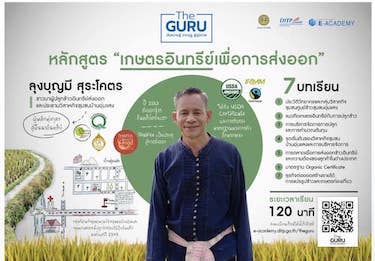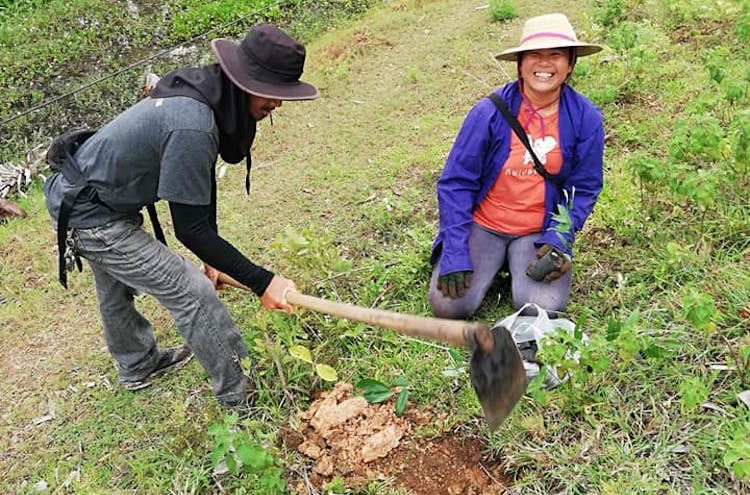By Pattama Vilailert
BANGKOK, 20 April 2023 (IDN) — With the kingdom’s population ageing and the debt-ridden farmers becoming restless, Thailand’s political parties are gearing up for the May 14 elections offering populist policies to woo the votes of both sectors of the population. HINDI | JAPANESE | THAI
Over 52 million people are eligible to vote for electing 500 members to the House of Representatives. With campaigning for the election gathering momentum since December 2022, Thai political parties have announced a range of attractive policies to win their votes. These include subsidies for older generations, maternal and child benefits, and funds to support the agricultural sector.
In the upcoming general election, there are more than 12 million senior citizen voters, and the President of the Association of the Elderly Council of Thailand under Royal patronage and the vice chairman of the National Committee for the Elderly (KorPorSor) under has confirmed that “2022 is the year Thailand fully entered the Aging Society”, that is, about 20% of the total population is over 60 years old.
The National Transfer Account (NTA) estimates that after spending to take care of children of school age and the elderly, one needs to have about 7.7 million baht (about USD 225,000) in savings for retirement if one lives until the age of 90. This is a considerable amount of money compared to Thailand’s wage income.
According to the Puey Ungphakorn Institute for Economic Research, farmer households have low incomes. In addition, 42% of farmers have insufficient residual income because they have to pay off debt and have insufficient money to invest in the next round of crops. At present, 90% of Thai farmer households are in debt, with an average of 450,000 baht (USD 14,000)per household.
The farmers borrow from a diverse range of sources, with Specialized Financial Institutions (SFI) as the main source of loans ( 65%), as well as village funds, merchant loans, relatives, investors, leasing companies, and saving cooperatives.
The Bank for Agriculture and Agricultural Cooperatives discloses that the number of elderly borrowers is approximately 1.4 million who do not necessarily be farmers.
It is in such a scenario that the four major parties have offered their respective party platforms for the elections. IDN investigates the four main parties’ platforms.
Pirapan Salirathavibhaga, former secretary-general to acting PM Prayut Chan-o-cha, leads the United Thai National Party (UTNP). The party announced a Welfare Plus Card, where the Elderly get an allowance of 1,000 baht (USD 30)per month. They will also provide funds to support agricultural prices, including rice and rubber, and a People’s Emergency Fund with a budget of 30,000 million baht (USD 872 million) for people to borrow and spend on their livelihood.
The Pheu Thai Party, founded by former Prime Minister Thaksin Shinawatra and now led by her daughter Paetongtarn Shinawatra, stated that precision technology could be used to improve crop yields and find new markets for Thai agriculture, giving 10,000 baht (USD 290) of digital currency to Thai people aged 16 and over, and suspending farmers’ debts for three years.
The Move Forward Party led by Pita Limjaroenrat, which was established to oppose the influence of the military junta, suggested that they would subsidize the elderly by 3,000 baht (USD 87) per month and set up a 10,000 million baht (USD 0.29 million) rights fund to settle land disputes by issuing rights documents to farmers.
The Palang Pracharath Party, led by acting Deputy PM Prawit Wongsuwan, also reveals a platform for giving allowances to the elderly. People 60 years of age would receive 3,000 baht per (USD 87) month, 70 years old would get 4,000 baht (USD 116), and those 80 years and over would earn 5,000 baht (USD 145) per month.
As the general election draws closer, most parties tend to attract voters with cash and digital handouts. But economists are worried about a post-election budget blowout.
In a recent interview with Isra News, Dr Nonarit Bisonyabut, a senior academic with Thailand Development Research Institute (TDRI), said, “If we assume we must pay 3,000 baht to the current elderly 12 million people, it is equivalent to having to pay 36,000 million (USD 1 million) per month”.
However, he points out that in the next 5-10 years, the number of elderly people will increase to 20 million people. “Even if we can borrow to subsidize these schemes, we must keep increasing the credit limit, which will result in a fiscal burden,” he warns.
Danucha Pitchayanan, Secretary-General of the National Economic and Social Development Council (NESDB), is also concerned about the debt moratorium platform proclaimed by political parties.
Speaking at a press conference, he argued that a debt moratorium should not be conducted. “Debt suspension does not cause the debt to go away, and ultimately has to pay the debt anyway,” he says. “Debt suspension and interest suspension have a continuous impact affecting financial institutions that are the pillars of the economy, what should be done is: the debt restructuring on an individual basis rather than for the whole system.”
“The political platforms are not reliable, farmers must depend on themselves, and a group must be formed to help them survive and they should apply the philosophy of sufficiency economy of self-reliance,” Boonmee Surakote, a Senator and the leader of the organic rice group Kasedtip told IDN.

< Boonmee Surakote, Senator and the leader of the organic rice group. Credit: Pattama Vilailert
Explaining the farmers’ problems further, he added, “Although we formed a group of over 300 members, we still cannot access funding with low-interest rates, so some farmers have borrowed from banks or loan sharks. The farmers have low incomes but bear a large amount of debt”.
Boonmee also pointed out that the farmers yield the crops at the same time, so it creates an oversupply, resulting in low incomes, while they bear a large amount of debt. “Therefore, they need to sell products in a rush to pay off their debt,” he says.
As a Senator and farmer, he has proposed a ‘Large Agricultural Land Plot’ scheme, with farmer network policies for farmers to establish a community enterprise. “When the enterprise is established, farmers can help each other and network with other communities to produce, sell and even export organic products by themselves”, argues Boonmee.
Some farmers are sceptical of Thai political parties’ short-term policies that tend to ignore the sustainable development needs of the agriculture sector.
Ning Noy, a farmer from Sri Saket province, told IDN, “As far as I am concerned, no parties have offered sustainable help”. She is thus not sure which party to vote for. “We need to stand on our own feet, I wanted to turn my farm to the organic one: it is sustainable and definitely paves the way for me to become self-reliant, but the organic fertilizer is a little costly.”
Senator Boonmee agrees that self-reliance is the way to enable farmers to become sustainable. He told IDN that “once the new government is on duty, I will pursue and push for the enforcement of the self-sufficient economy approach in the agricultural sector.” He believes that the lives of farmers do not rely on the outcome of the election but on a self-sufficient economy. [IDN-InDepthNews – 20 April 2023]
Photo: Ning Noy, a farmer from Sri Saket province. Credit: Pattama Vilailert.




